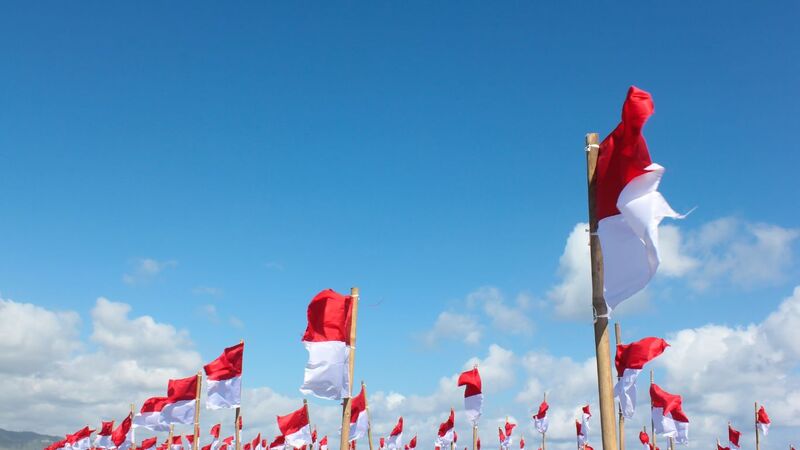As the annual commemoration of the independence of the Republic of Indonesia approaches, Indonesia Expat zooms in on some of the most unique and fascinating celebratory traditions from different cultures and regions in the country.
The annual celebration of the Republic of Indonesia’s Independence Day, falling on the 17th of August, is always filled with various rituals and celebrations, ranging from flag ceremonies, pilgrimages to heroes’ graves, to fun-spirited competitions. Several regions in Indonesia, meanwhile, have relatively more unique and fascinating traditions to commemorate Independence Day so much so that the traditions have become a tourism attraction among both the domestic spectators and foreign tourists. Let’s take a peek at some of the most unique celebratory traditions of Independence Day below.
The below traditions are listed in alphabetical order.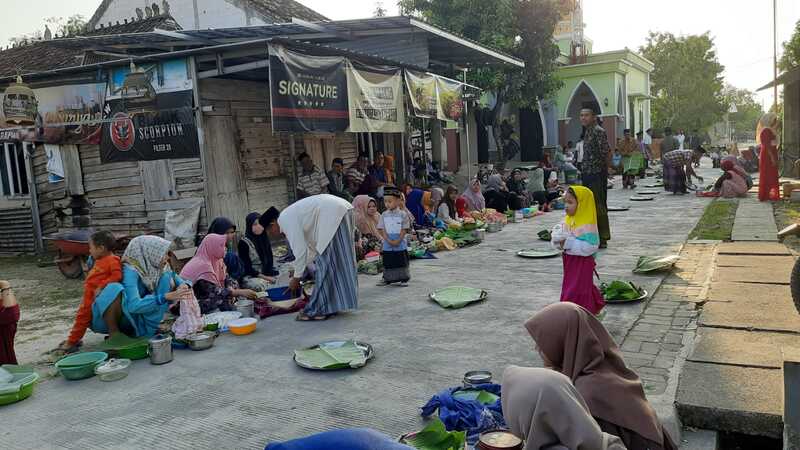
Barikan, Malang
Often conducted the day before the annual Independence Day, the locals in various areas in East Java, especially Malang, hold a unique tradition known as Barikan. Barikan is a thanksgiving tradition held in every village or neighbourhood in Malang and several other areas in East Java, such as Lumajang, Surabaya, and Banyuwangi. This tradition has strong cultural roots and has been passed down from generation to generation. The locals believe that Barikan is a moment where residents gather to give thanks for the blessings they have received over the past year, as well as to ask for safety and prosperity for the environment and the country. On the evening of August 16, residents in various villages, housing complexes, and alleys in East Java gather at intersections or three-way junctions. They sit on mats that have been laid out, bringing food in traditional containers such as tampah or besek. The food typically varies, from fruits and cakes to rice, depending on the mutual agreement that has been made beforehand.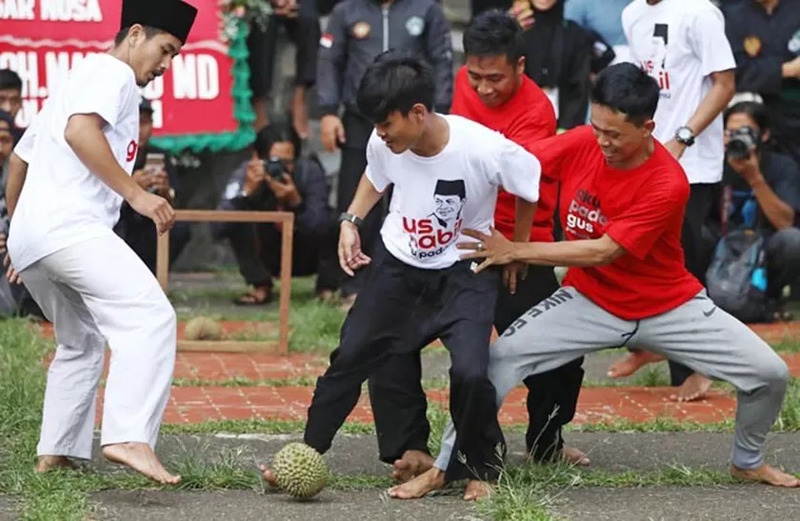
Durian Football, Kebumen
In various regions in Indonesia, people celebrate Independence Day with various competitions, ranging from unique and funny to borderline extreme. One of the unique and extreme traditions can be found in Kebumen, Central Java, where the annual Independence Day celebration is always accompanied by a durian football competition. As the name of the tradition implies, in this competition, participants play football using durian as a ball. The Durian Football tradition is usually followed by certain groups, such as members of spiritual forums and local youths who are known to have big guts. Durian, a tropical fruit with sharp, spiky skin, makes this game challenging both physically and mentally. Participants not only need soccer skills but also physical endurance to face the risk of injury from sharp durian thorns. The locals believe that playing durian football is a symbol of courage and fighting spirit inherited from the heroes that ushered in independence to Indonesia.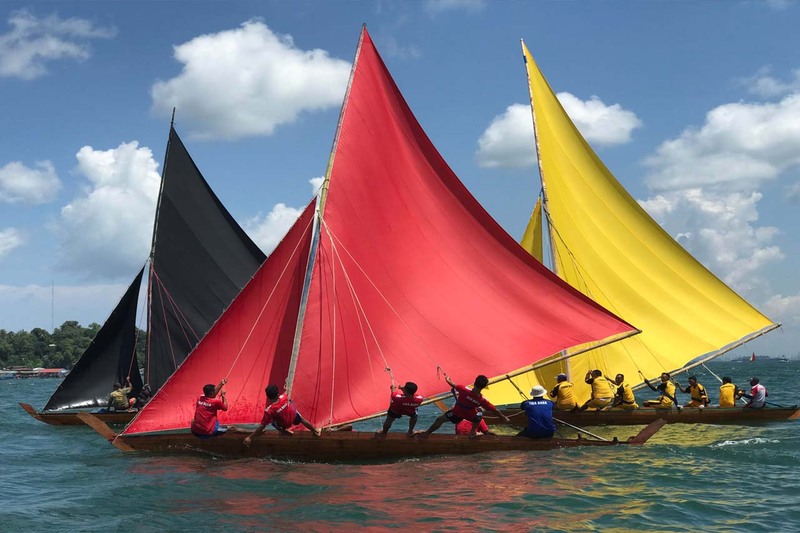
Lomba Sampan Layar (Sailing Boat Race), Batam
Since 1965, the celebration of Independence Day in Batam has always been enlivened by the tradition called lomba sampan layar or sailing boat race. This tradition is considered indispensable by the locals, during which the locals as well as tourists would gather in local waters to watch the race. The locals regard the sailing boat race as both a demonstration of Batam’s maritime skills and a symbol of togetherness as well as unity of the Batam community. The boats used are typically decorated with red and white flags, reflecting a high spirit of patriotism. Each participant, consisting of fishermen and native residents, must use their skills in navigating a sailing boat amidst ocean currents that are sometimes quite challenging.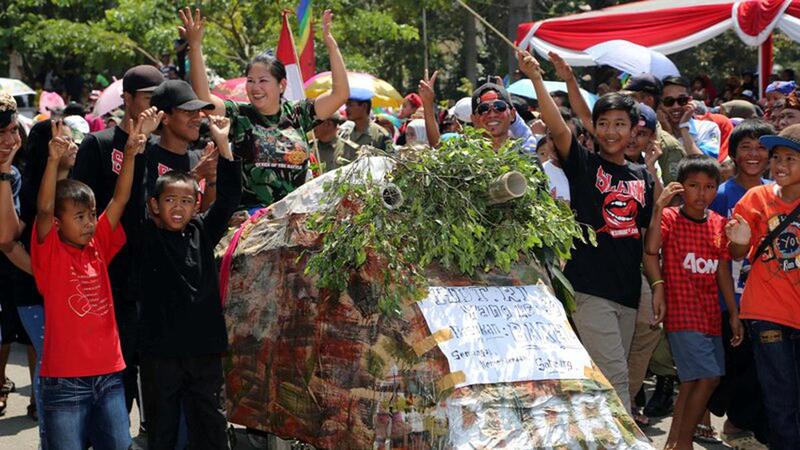
Jampana Parade, Bandung
Not only attended by native residents, the Jampana parade also often attracts the attention of tourists who come to see the uniqueness of Sundanese culture first-hand. During the parade, spectators and tourists are treated to the sight of large stretchers filled with rice, vegetables, fruits, and handicrafts, which reflect the agrarian wealth and skills of Bandung residents. The Jampana parade is also accompanied by traditional art performances such as dance, music, and pencak silat which add to the excitement of the event. This art showcase is an important part of the parade as it also underscores Bandung’s rich natural resources as well as cultural heritage. Every year, especially during the annual celebration of Independence Day, the Jampana parade is always awaited by the people of Bandung, both as a form of entertainment and as a moment of reflection on the importance of maintaining local traditions and culture. 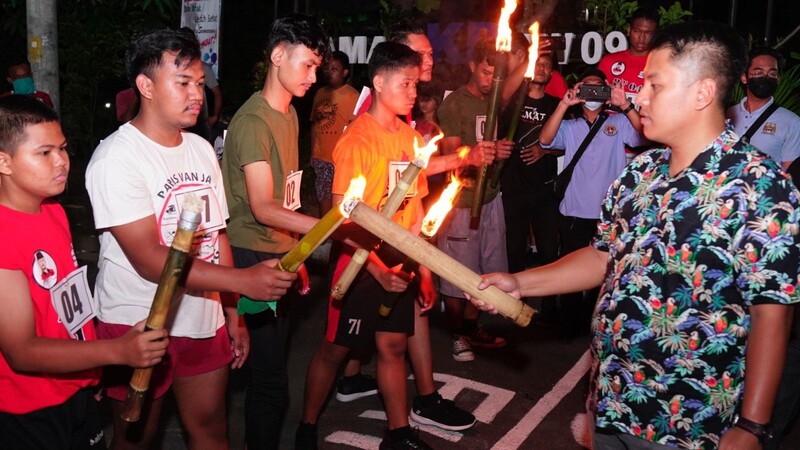
Obor Estafet (Torch Relay Race), Semarang
A tradition that is no less unique and lively is also carried out by the locals in Papandayan Village, Gajahmungkur District, Semarang, Central Java — a tradition known as obor estafet or torch relay race. The participants in this torch-carrying race are typically the best athletes in Semarang. In this race, the rule states that the torch must be lit from start to finish as the participants run an up-and-down route of approximately five kilometres. The start is usually done at Taman Sudirman Gajahmungkur and finishes back at Taman Sudirman. This race also offers prizes for the winners, namely money and trophies. The torch is considered by the locals a symbol of the spirit of the heroes when fighting for the independence of the Republic of Indonesia. Through this torch relay race, the community is expected to be able to emulate the spirit of the heroes and continue their struggle to secure independence. 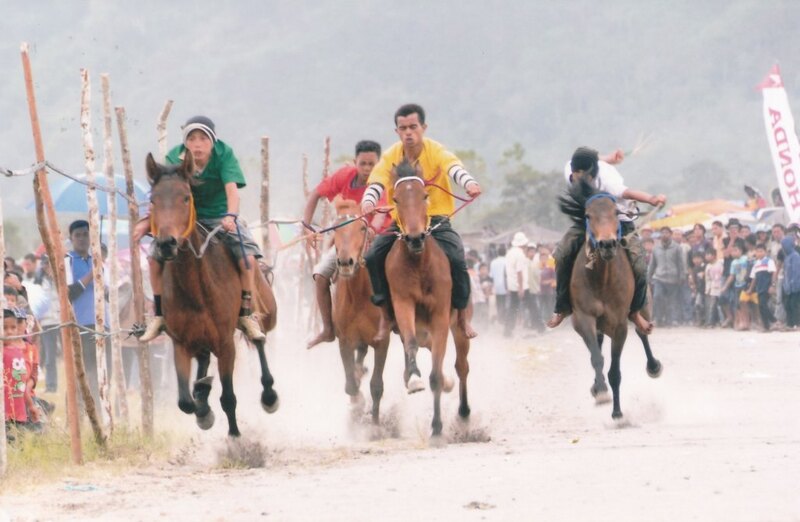
Pacu Kude, Aceh
The Pacu Kude tradition is a traditional horse racing competition with jockeys without using saddles. Pacu Kude is an event typically aimed to attract the attention of the surrounding community. In recent years, Pacu Kude has been held routinely as a tourism attraction in Central Aceh as well as Bener Meriah Districts. The first Pacu Kude was held in 1850. Before the Gayo people knew about vehicles, horses were the main mode of transportation at the time. As the quality of racehorses improved, jockeys also began to use saddles and other safety equipment when racing their horses.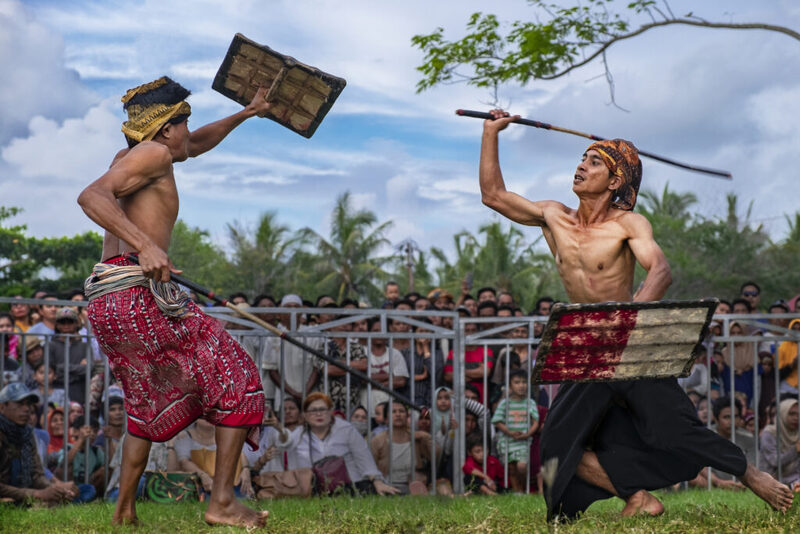
Peresean, Lombok
The people of Lombok, West Nusa Tenggara, have a unique tradition to celebrate Independence Day — a tradition called Peresean. This hereditary tradition is one of the attractions of cultural tourism in Lombok as many domestic and foreign tourists would often flock to Lombok on Independence Day to watch the Peresean performance. Peresean is a fight between two men commonly referred to as pepadu. The fight between the two pepadu uses rattan sticks or penjalin and shields made of thick and hard buffalo skin or ende. The rattan stick is used to attack the opponent, while the shield is used to protect the body from attacks. The pepadu wear pants wrapped in a typical Lombok cloth cover and a headband. The locals regard Peresean as a symbol of chivalry and brotherhood.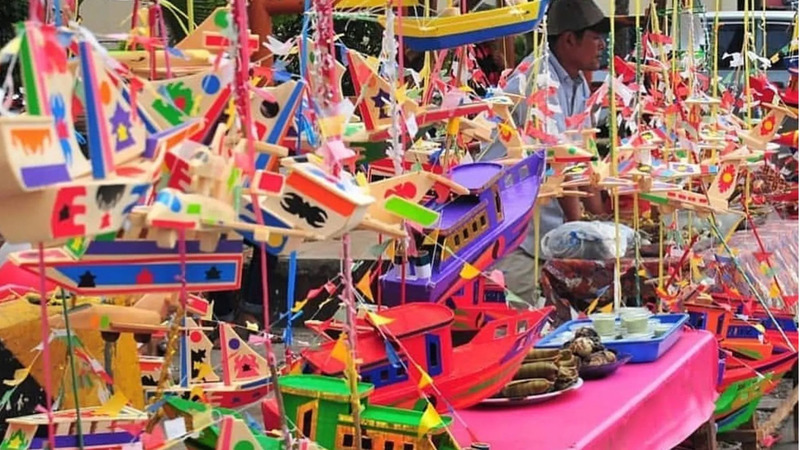
Telok Abang, Palembang
If you celebrate Independence Day in Palembang, you may encounter a unique tradition called Telok Abang; a hereditary tradition only found on the 17th of August. On the side of the road, traders are busy selling Telok Abang as the locals, especially children, are enthusiastically hunting for Telok Abang. In short, Telok Abang is boiled eggs with red shells that are stuck into children’s toys, such as boats, airplanes, and cars, made of wood or cork. The price of Telok Abang varies between Rp25,000 to Rp60,000 per piece, depending on the type and size of the toy. It is believed that red eggs are a symbol of opposition against the Dutch colonists. The red colour shows the resistance and courage of the Indonesian people in fighting the colonists. Eggs, to boot, are considered a symbol of life by the locals. Meanwhile, red eggs being equipped with ships are meant to be a remembrance of the history of Palembang which was once, centuries ago, a massive maritime kingdom known as Srivijaya.




